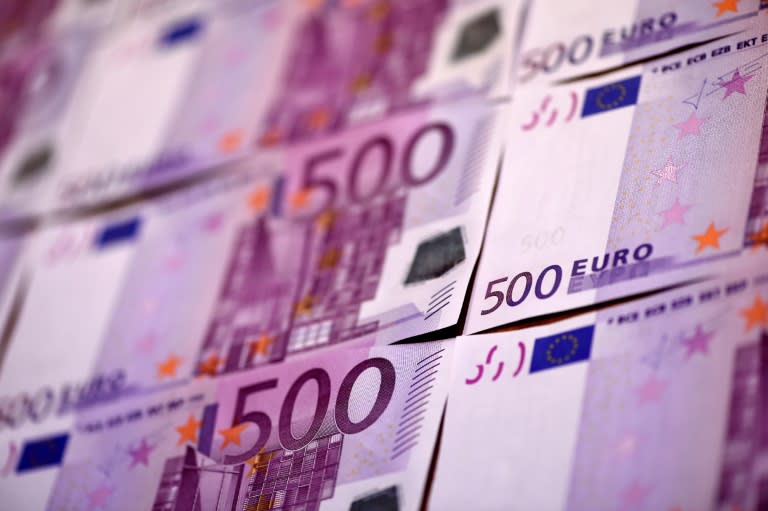Germany issues 10-year bond at negative interest rate

Germany issued a 10-year bond at a negative interest rate for the first time on Wednesday, as fears about Brexit and economic worries cause investors to rush to the safety of German debt. The German central bank or Bundesbank announced that it sold more than 4.0 billion euros ($4.5 billion) of a new 10-year bond with a yield of minus 0.05 percent. In all, a total 4.783 billion in bids were received for the zero-interest rate bonds. And some 4.038 billion euros were allotted, the Bundesbank said. The 10-year German government bond or "Bund" acts as a benchmark on the debt markets and regarded as one of the safest investments. It is the first time that investors have accepted negative returns in the first issue of a bond, meaning they will pay for the privilege of owning rock-solid German bonds amid fears about the consequences of the British vote to quit the European union and economic worries. While borrowers traditionally pay interest on the money they are loaned, in the face of heightened political and economic uncertainty, those interest rates have come down to record lows recently as investors flock to safe havens to park their cash. By accepting negative yields, investors are effectively ditching any hope of a return on their investment in what seems a reasonable price to pay to escape the uncertainties of falling stock markets or volatile commodities and currencies. Interest rates on sovereign debt have been low for some time as central banks snap up government bonds from investors in an effort to boost economic growth through increased liquidity. The European Central Bank has slashed its key interest rates to zero and launched a massive bond-buying programme known as quantitative easing (QE) in a bid to get the eurozone economy back on its feet and push inflation higher. Germany is just one of three countries in the euro area and six in the European Union to enjoy a top-notch triple-A rating on its sovereign debt. Germany's own finances have benefitted from its safe-haven status in recent years, because with investors favouring German sovereign debt, borrowing rates in Europe's biggest economy have come down. The government has seen its annual interest payments fall from more than 40 billion euros per year in 2008 to 21 billion euros in 2015. The reduced debt servicing costs enabled Germany to balance its budget in 2014 for the first time since 1969 and a year ahead of target.

 Yahoo Finance
Yahoo Finance 